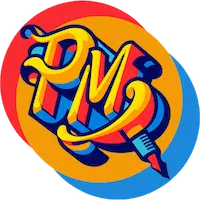Bayer CEO Bill Anderson introduced Dynamic Shared Ownership (DSO) as a transformative operating model. DSO aims to reduce bureaucracy, eliminate hierarchies, and accelerate decision-making processes within the organization. It involves creating a thriving ecosystem of micro-businesses run by intrapreneurs, all in service of customers. Anderson drew inspiration from consultant Gary Hamel’s ideas, emphasizing agility and self-organization. Haier serves as a successful example of a company that implemented similar principles.
Bayer’s Need for Reinvention
Bayer faces challenges, including a market cap at two-decade lows. The decline is partly due to extensive litigation following its acquisition of Monsanto in 2018. Despite financial flaws, Anderson views the Monsanto acquisition as strategically brilliant. His motivation lies in leveraging biotechnology to address critical global issues, such as sustainable food production and regenerative aviation fuels. However, Bayer’s organizational structure requires reinvention, especially considering its German cultural affinity for rules, which may not align with 21st-century dynamics.
Dynamic Shared Ownership (DSO): A Path to Organizational Transformation
Bayer, a 160-year-old company, is embarking on a radical experiment with its new operating model called Dynamic Shared Ownership (DSO). This model aims to address several critical aspects:
- Codetermination System: Bayer’s board comprises 10 shareholder representatives and 10 worker representatives. If not executed correctly, this codetermination system can exacerbate hierarchical bureaucracy issues.
- Empowering Workers: Anderson, the CEO, emphasizes that DSO will empower workers by granting them more decision-making power. The company’s financial challenges have fostered a willingness to embrace change.
- Cost Savings and Job Losses: While job losses are inevitable, everyone acknowledges their necessity to tackle financial problems. Bayer is confident in implementing a new model where costs are streamlined.
- Agility and Reinvention: Bayer’s adoption of DSO represents a bold move to redefine its future. If successful, it could serve as a model for other corporations seeking to reinvent themselves in the 21st century123.
Bayer’s journey toward agility and self-organization is indeed a pivotal moment in its long history.

